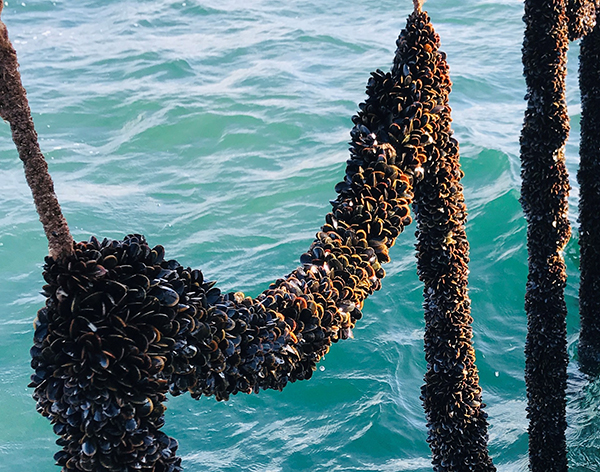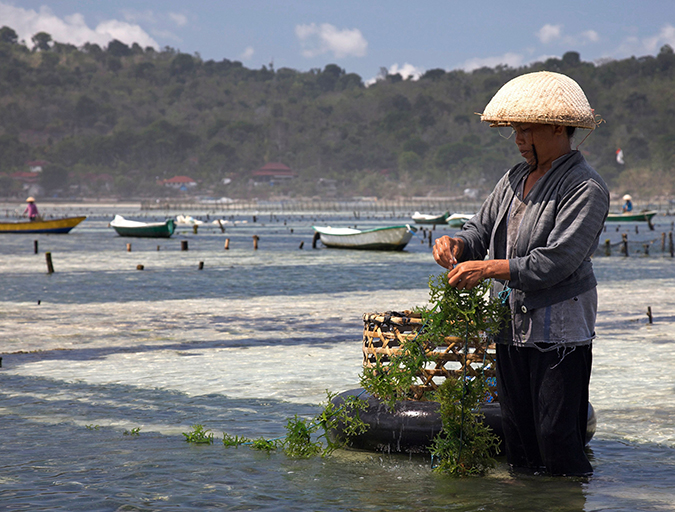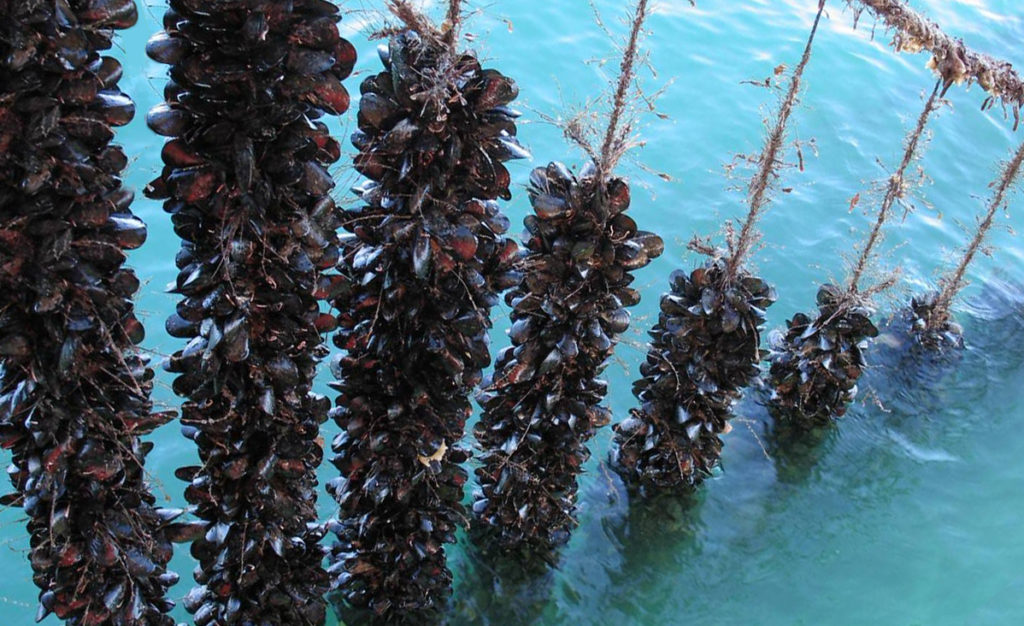Project explores if adding farmed mussel meat could reduce environmental impact and increase nutrition of beef products

A researcher at the University of Stirling is assessing the feasibility of improving human, planetary and economic health by using farmed mussel meat in highly saturated beef products.
“As part of my dissertation, I am collecting data on the public perception of the meat industry and how this may change over time in line with United Nations and Scottish government goals and guidelines,” said Emma Sandison, project lead.
Sandison, an undergraduate who is in her final year of studying Marine Biology, has developed an online survey to assess likely consumer interest and perceptions. It also develops and tests the impacts using life-cycle assessment and nutritional analysis of burgers with different levels of mussels incorporated.
“We are looking to promote seafood consumption, especially among younger and lower-income people who currently eat almost none,” said David Little, professor and deputy director at the Institute of Aquaculture at the University of Stirling.
Participate in the survey here.
Follow the Advocate on Twitter @GSA_Advocate
Now that you've reached the end of the article ...
… please consider supporting GSA’s mission to advance responsible seafood practices through education, advocacy and third-party assurances. The Advocate aims to document the evolution of responsible seafood practices and share the expansive knowledge of our vast network of contributors.
By becoming a Global Seafood Alliance member, you’re ensuring that all of the pre-competitive work we do through member benefits, resources and events can continue. Individual membership costs just $50 a year.
Not a GSA member? Join us.
Author
Tagged With
Related Posts

Responsibility
Study: Offshore mussel farms could benefit marine environment
A University of Plymouth study suggests that offshore aquaculture farms could potentially benefit the wider marine environment.

Responsibility
Study: Blue foods are ‘vital’ in the global food system but excluded from policymaking agenda
A new study says blue foods are “vital” to the global food system, but are often left out of food system analyses, policies and investments.

Responsibility
New analysis and online tool shows value of aquatic foods in addressing global food challenges
A new interactive online tool and analysis shows how leveraging aquatic foods can help policymakers address multiple global challenges.

Responsibility
Can nutrition-sensitive aquaculture futureproof fish farming?
Research finds that nutrition-sensitive aquaculture can benefit public health through diverse, nutrient-rich seafood, and enabling equitable access to it.



